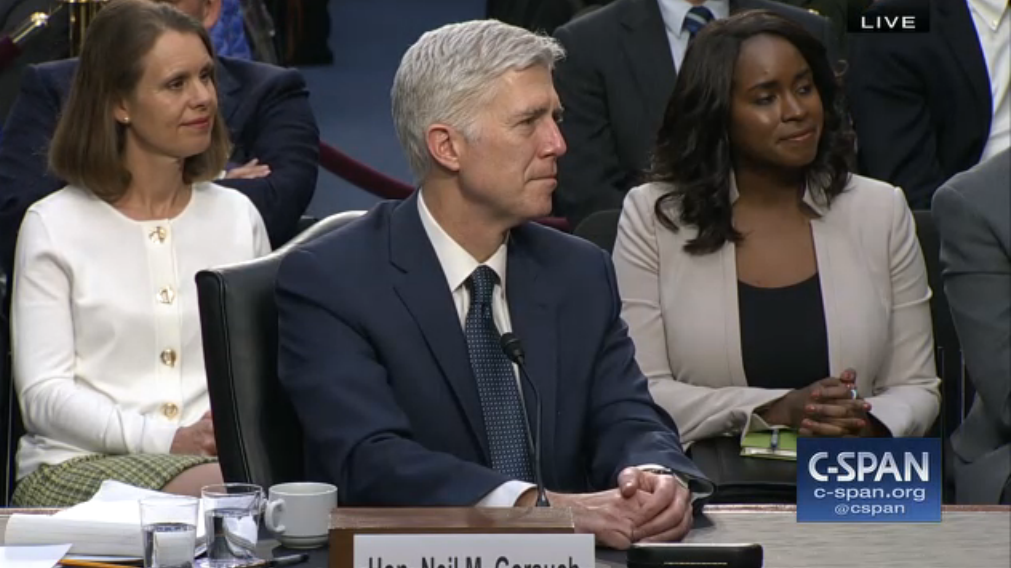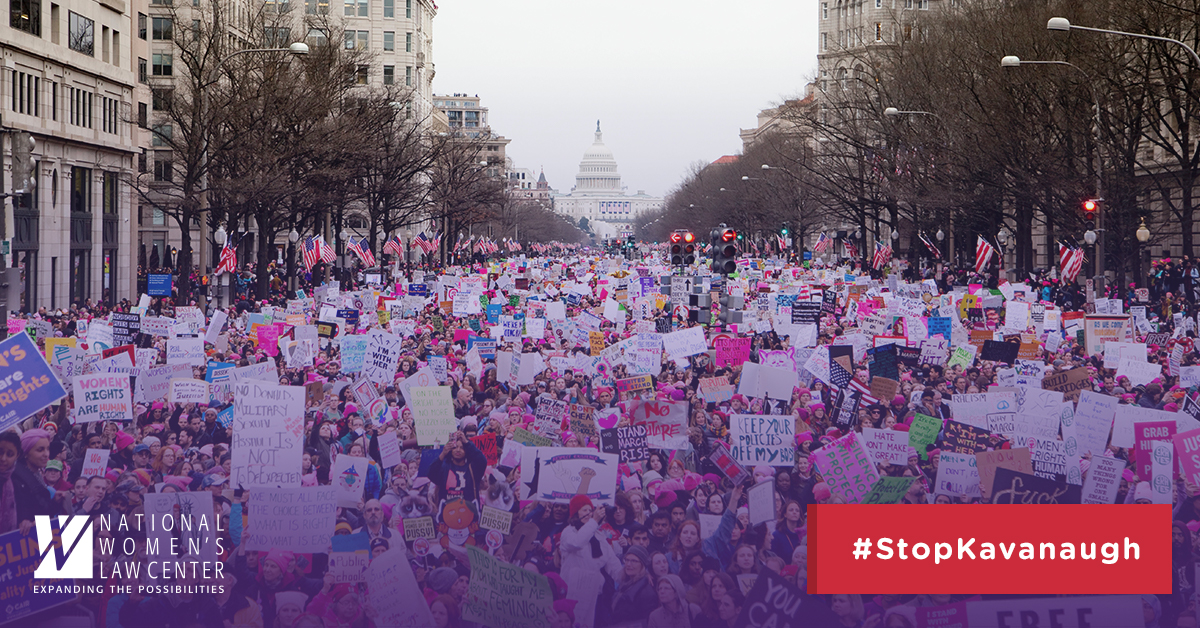The Senate Needs to Keep Talking About Judge Neil Gorsuch’s Nomination to the Supreme Court

 Sen. McConnell filed a motion to end debate on Judge Gorsuch’s nomination to the Supreme Court yesterday, and a vote on that motion will happen tomorrow. The fact that Senator Jeff Merkley just talked on the Senate floor about Judge Gorsuch’s nomination for over 15 hours is one hint that ending debate on this nomination to a lifetime position on the Supreme Court is premature. To be clear, there is a lot to talk about. Judge Gorsuch’s record and testimony before the Senate Judiciary Committee clearly demonstrated that his approach to the law favors corporations, employers, and other powerful entities and harms women who seek the law’s protections.
Sen. McConnell filed a motion to end debate on Judge Gorsuch’s nomination to the Supreme Court yesterday, and a vote on that motion will happen tomorrow. The fact that Senator Jeff Merkley just talked on the Senate floor about Judge Gorsuch’s nomination for over 15 hours is one hint that ending debate on this nomination to a lifetime position on the Supreme Court is premature. To be clear, there is a lot to talk about. Judge Gorsuch’s record and testimony before the Senate Judiciary Committee clearly demonstrated that his approach to the law favors corporations, employers, and other powerful entities and harms women who seek the law’s protections.
In addition, there’s no reason to rush a confirmation vote when Judge Gorsuch still didn’t answer questions about important legal issues in his answers to written questions from the Judiciary Committee, and apparently did not have time to meet with several female Senators. And let’s please not forget that Republicans were perfectly content to leave the Supreme Court vacancy unfilled as long as Judge Merrick Garland was the nominee – or indefinitely, if Hillary Clinton had been elected.
Under current Senate rules, this healthy debate will continue — unless 60 Senators agree to end debate. Supreme Court nominees have historically been required to garner 60 votes in order to be confirmed. This level of support indicates that a nominee is open-minded, fair, and independent. A 60-vote threshold for Supreme Court nominees has been the norm precisely because the Court decides cases that have a substantial impact on people’s lives every day. Women’s lives and futures literally hang in the balance when the Supreme Court rules on their constitutional right to privacy, including reproductive rights and access to safe and legal abortion, on their constitutional right to equality and protection from discrimination, and on the scope and effectiveness of hard-won statutes promising them equal opportunity in the workplace, education, and far beyond.
The failure to muster 60 votes is the clearest of signs that a nominee is unfit for a lifetime position on the Supreme Court. If, as is expected, Neil Gorsuch is unable to meet this threshold when the Senate votes to end debate tomorrow, the obvious response would be to return Judge Gorsuch’s nomination so the President can nominate an individual who respects core constitutional values of liberty, equality, and justice for all. But instead, Senate Majority Leader Mitch McConnell has promised to change the rules of the Senate so that Neil Gorsuch can be rushed to confirmation.
It is shocking that we cannot count on Republican Senate leadership to keep in place the rules that help ensure that justices on the Supreme Court respect core constitutional principles and well-established legal protections. But that’s why it’s more important than ever that Senators reject Judge Gorsuch’s nomination.




